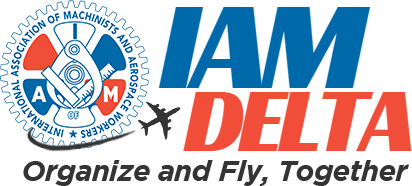United Pilots Score Big Because They Have a Union
With this new contract, United pilots are receiving pay raises of up to 40% over four years, and the union values the incremental value of this agreement at around $10 billion.
To start, pilots will get an immediate pay increase of 13.8% to 18.7% as of the date of signing (on the low end, 14.1% for the 777 and 787, and on the high end, 18.7% for the 737-700 and A319).
The above new pay rates match Delta’s new pay rates, so they’ll immediately increase by 1%. That’s because Delta pilots have a snap-up clause promising the best pay in the industry. Since this contract matches Delta’s pilot pay, Delta pilots will immediately get a 1% raise, and then United pilots will also immediately get a 1% raise, due to a similar clause.
Furthermore, pilots will then get an additional 5% pay increase as of 2024, 4% pay increase as of 2025, 4% pay increase as of 2026, and 3% pay increase as of 2027.
But the increased hourly rates are just one aspect of this contract. While there are lots of quality of life improvements and other positive minor changes, there are two other major improvements:
- United’s profit sharing for pilots will match Delta’s — they’ll get 10% of profits up to $2.5 billion, and 20% of profits above $2.5 billion
- United pilots will get a $1.2 billion recapture of lost pay — 4% of 2020 earnings, 4% of 2021 earnings, 14% of 2022 earnings, and 14% of earnings from January 2023 through the date of signing.
Aren’t We Family Ed?
Delta Air Lines has a history of making changes that are unpopular both for workers and passengers. Please see if what you read does not sound familiar. In 2014, they were the first of the major airlines to announce that the SkyMiles program would convert to a revenue-based model for earning points. Just a year later, the airline removed award charts from their website without notice. Ever since then, Delta has taken the opportunity to devalue SkyMiles by making sudden changes to the number of miles needed for an award.
Before, they’d just announce the change and then do public relations damage control. They would issue a statement about how the changes were good for the customers or it’s what the flyers were asking for. But the changes usually stayed.
Delta has been taking a different approach lately. They make very aggressive changes. The customer complaints roll in and Delta then says they are listening and they will be making changes to the changes.
This happened in May 2022, when Delta announced changes to the SkyClub entry policy. Changes at the time were:
- You could only access a SkyClub three hours before your departure time.
- Access was limited to your departure city and connecting airport, with no access to a SkyClub upon arrival.
The three-hour entrance limit before a departing flight has stuck but the arrival thing was retracted. Delta claims it was because they were listening.
We heard your feedback in response to the updates, including that some customers want to visit a Club to refresh after landing or to recharge ahead of a meeting. … We value your input — and we’ve acted on it
They most recently announced sweeping changes affecting how people earn status and policies about entering Delta SkyClubs. Customers were not happy. Some started to make plans to leave Delta for other airlines. Other airlines offered status matches to Delta’s elite flyers. The disgruntlement became as big a news story as the changes.
Now Delta CEO Ed Bastian says Delta went “too far” and that modifications would be made. It seems that Delta isn’t treating any part of their family too well.
Pension and Retirement
Many of the younger employees tend not to think about retirement, which tends to work in Delta’s favor. While our 6% 401k match and automatic 3% contribution from Delta is good when compared to other industries, it is far below others in the industry when standing toe to toe with them.
A few examples are:
- Southwest Airlines has a 9.3% 401(k) match. Using the current Delta pay scale to compare the Delta 401(k) match against Southwest’s, assuming average 6% growth, Southwest employees would have over $31,000 more in their 401(k) in just 11 years and that gap would continue to grow over time.
- United Airlines has a combo pension and 401(k). For each hour worked, United contributes $2.05 into the IAM Pension Fund fund so that under the current agreement, when an employee retires, they will receive $89 per month per year of service. If an employee works for 20 years they will receive $1780 a month, for 25 years they receive $2,225 from age 65 until they die, plus whatever they receive from the 401(k) that has a progressive match that tops out at 3%.
- American also has a combo pension and 401(k). Through their new contract, they will receive $1.70 per hour to $1.85 per hour worked which will deliver a substantial monthly pension until the end of an employee’s life. They also have access to a 4% 401(k) match.
